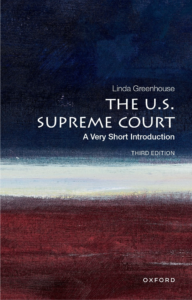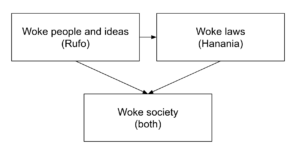First read: http://en.wikipedia.org/wiki/Evidence-based_policy
Then,
Mad Cows and Ecstasy: Chance and Choice in an Evidence-Based Society by: Adrian F. M. Smith
Journal of the Royal Statistical Society. Series A (Statistics in Society), Vol. 159, No. 3. (1996), pp. 367-383, doi:10.2307/2983324
Mad cows and ecstacy chance and choice in an evidence-based society
“Most of us with rationalist pretensions presumably aspire to live in a society in which decisions about matters of substance with significant potential social or personal implications are taken on the basis of the best available evidence, rather than on the basis of irrelevant evidence or no evidence at all. Of course, the nature of what constitutes evidence in any particular instance could be a matter for significant debate. But, modulo such debate, most of us have the aspiration to live in a society which is more, rather than less, ‘evidence based’.”
“In particular, there has been the growth of a movement in recent years calling itself ‘evidence-based medicine’, which perhaps has valuable lessons to offer. This movement has its antecedents in the work of people like Archibald Cochrane, who, in the 1970s, were concerned at what they saw as the disappointing level of real effectiveness of medical services, and the mismatch between the resources employed and health status outcomes achieved. Cochrane and others argued that these deficiencies were mainly attributable to the lack of systematic use of scientific method, particularly in evaluating therapeutic interventions through the use of controlled trials.
Part of what the movement is about is described as follows by its leading proponents:
‘Evidence-based medicine is the conscientious, explicit, and judicious use of current best evidence in making decisions about the care of individual patients. The practice of evidence-based medicine means integrating individual clinical experience with the best available external clinical evidence from systematic research. . . . Without current best evidence, practice risks becoming rapidly out of date, to the detriment of patients’ (Sackett et al., 1996).
From a conventional statistical point of view, what does this amount to? At one level, it manifests itself in the creation of targeted databases of systematic literature reviews of statistical evidence -see, for example, Chalmers and Altman (1995) for a recent overview from a mainly statistical perspective. But this is also accompanied by a commitment to communicating findings in a readily assimilable form to relevant practitioners. One such enterprise, the Cochrane Collaboration, is an international network of individuals and institutions committed to the preparation, maintenance and dissemination of systematic reviews of the effects of health care. The aim is that
‘At the bedside or in the office, physicians should have instantaneous, up-to-date assistance from an affordable, universally available database of systematic reviews of the best evidence from clinical trials . . . data from the trials would have to be presented in a standardized, graphic, and easily comprehensible form . . . if the only information the physician received was that there was no reliable information . . . that in itself would be extraordinarily useful’ (Bero and Rennie, 1995).
But what is so special about medicine? We are, through the media, as ordinary citizens, confronted daily with controversy and debate across a whole spectrum of public policy issues. But, typically, we have no access to any form of systematic ‘evidence base’ and, therefore, no means of participating in the debate in a mature and informed manner. Obvious topical examples include education -what does work in the classroom? and penal policy what is effective in preventing reoffending? Perhaps there is an opportunity here for the Society together with appropriate allies in other learned societies and the media to launch a campaign, directed at developing analogues of the Cochrane Collaboration, to provide suitable evidence bases in other areas besides medicine, with the aim of achieving a quantal shift in the quantitative maturity of public policy debates”
“[the ignoring of rational methods to weigh probabilities (bayes’ theorem) in juries] is bad enough, but the legal mentality displayed here has knock-on effects well beyond the confines of the courts. A not insignificant number of Members of Parliament are lawyers. Perhaps as a consequence, the style of debate and enquiry which characterizes much of the working of the UK Parliament and its committees stresses and rewards the mastery of an adversarial style, employed for short-term effect, rather than any long-term commitment to an evidence-based approach. The discussion of our national affairs therefore takes place in an overwhelmingly superficial and silly atmosphere, which runs counter to the more dispassionate forms of evidence gathering and assessment that should characterize a mature democracy. However, there are those e.g. in the Parliamentary Office of Science and Technology who seek to bring a more scientific and technical focus to bear on parliamentary debates and we should undoubtedly try to do more, as a Society, to aid and abet their efforts”
etc.
It’s a very good read!
–
This might also be worth reading:
ESRC UK Centre for Evidence Based Policy and Practice: Working Paper 2,
Systematic Reviews: What have they got to offer evidence based policy and practice?
Annette Boaz, Deborah Ashby, and Ken Young – Should I do a systematic review
–
http://www.cochrane.dk/research/index.htm
This link was mentioned in one of the sources. Good thing i checked it out which i only did becus it surprisingly ended in the TLD .dk. However, on the site there are a few papers publicly available. It was a very, very, very good thing i went there becus of curiosity. Otherwise i might have missed the paper: Why we need easy access to all data from all clinical trials and how to accomplish it, Gøtzsche Trials 2011, 12:249
http://www.trialsjournal.com/content/12/1/249. Why we need easy access, Trials 2011
This is a very important paper for anyone with an interest in medicine, meta-reviews/systematic reviews, science, transparency, corruption etc. to read. I think this paper is so good that i personally wrote the author a thank-you email!

